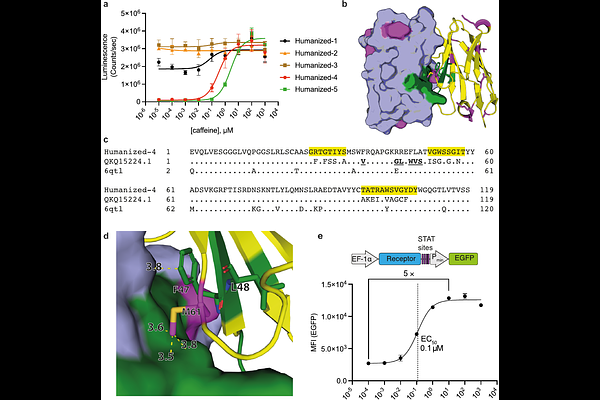Humanized Caffeine-Inducible Systems for Controlling Cellular Functions

Humanized Caffeine-Inducible Systems for Controlling Cellular Functions
Scheller, L.; Correia, B.; Elia, M.; Kang, C.; Bonati, L.; Gainza, P.; Garodia, Y.; Deshpande, P.; Schmidt, J.; Georgeon, S.; Tang, L.
AbstractCurrent cell therapies are limited by the lack of tools for controlling gene expression using humanized systems responsive to non-toxic stimuli. Starting from nanobodies that homodimerize in response to caffeine, we computationally designed inducible heterodimers and humanized the best-performing pairs. We used the resulting caffeine-inducible domains in engineered cytokine receptors for caffeine-inducible STAT3 signaling and in split transcription factors (caff-TFs) containing human-derived zinc-finger proteins. Heterodimerization of split transcription factors drastically enhanced their performance compared to homodimerization. We demonstrate that caff-TFs are compatible with lentiviral and retroviral delivery to Jurkat T-cells and enable inducible expression of therapeutic genes such as chimeric antigen receptors (CARs) in response to caffeine concentrations consistent with normal coffee consumption. By using the common, non-toxic molecule caffeine, and exclusively humanized protein components, these systems promise to be a safer alternative to existing systems and may be used in synthetic biology applications and for safer, more effective cell therapies.